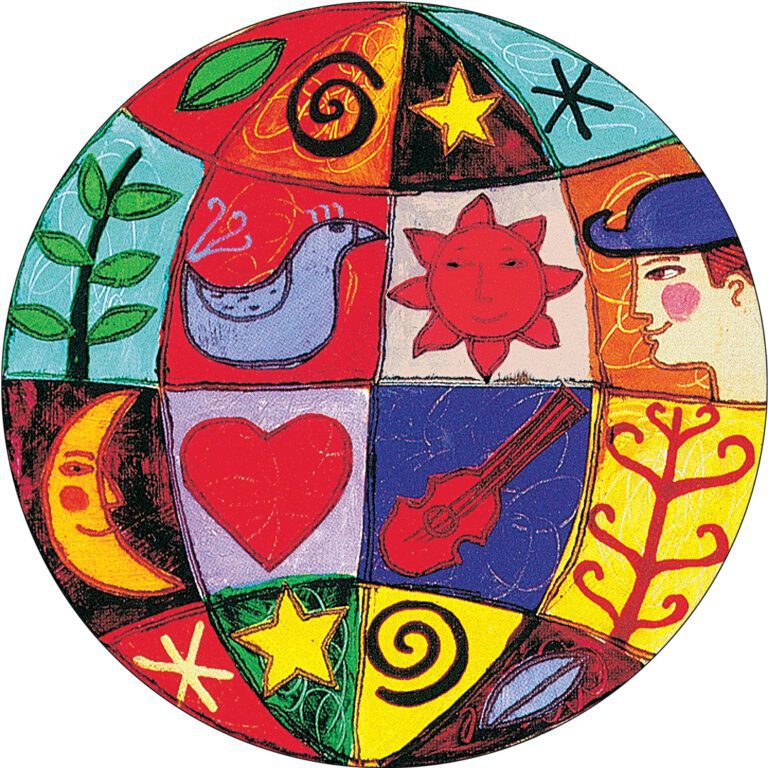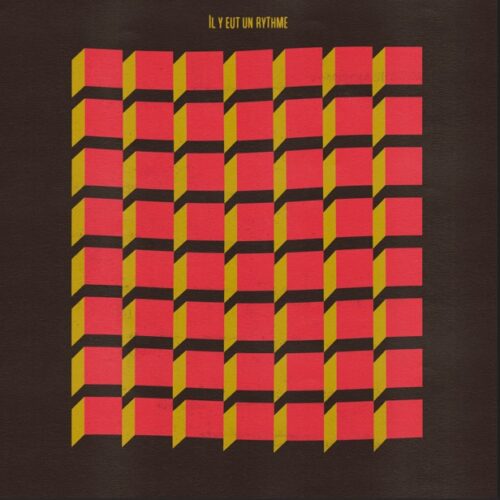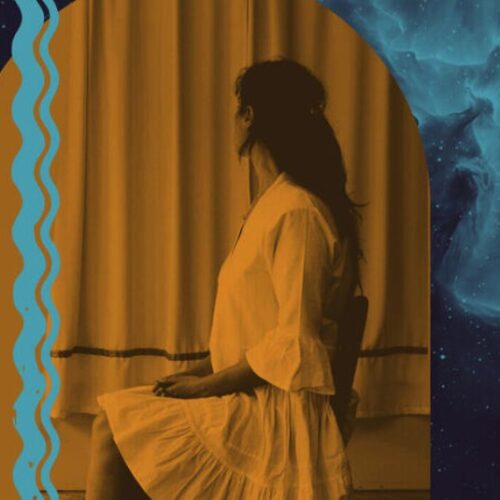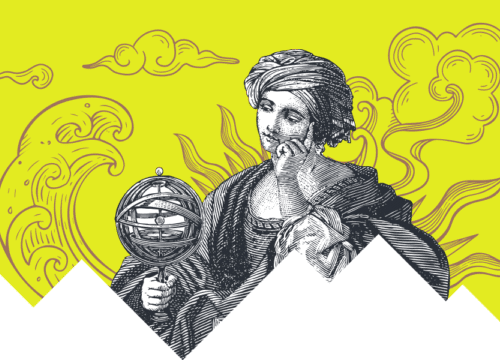Additional Information
In 1993, the success of a New York boutique selling ethnoculturally inspired hadicraft clothing turned into a music label. Thus was born a record label that would become one of the most famous in the world.
Putumayo World Music’s 30th anniversary is being celebrated throughout 2023, but one of the highlights will take place this Friday, May 26, at the company’s headquarters in northern Vermont. It’s close by, about 150 km from Montreal, and everyone is welcome (just cross the border)! Quebec artists will be participating: Wesli, Diogo Ramos, Mamzelle Ruiz and Bia.
On the occasion of this anniversary, I met Jacob Edgar, ethnomusicologist and long-time partner of founder Dan Storper. How do you explain the great success of the label? Why did they choose to release compilations rather than full-length albums of artists? What have been the challenging moments in the company? How is Putumayo adapting to the arrival of streaming platforms? We discussed all of this, and more. Here’s a recap.
Pan M 360 : The story is fairly well known: a popular clothing store in New York (spoofed in Seinfeld!) used to play “world” music as a background to shopping. Then, Dan Storper, owner of the store, decided to make a record label out of his choices and propose to sell compilation albums. The rest is history. But in order to better comprehend what really happened, can you tell us if it was a well-prepared plan from the beginning or just a throw at life that eventually caught on big?
Jacob Edgar : I don’t think it was luck. I think that Dan’s real inspiration for starting Putumay was that he was finding that customers really loved his playlists and that they weren’t hearing that kind of music anywhere else. That’s the first reason. The second one is that what we then called World Music, and which was emerging at that time, had a universal appeal. It seemed to him that it brought people together and so I think he saw something very positive in a global perspective.
He recognized that there was a need for a music company that was promoting music to a wide, mainstream audience that had a positive message. And that was based on a few but solid principles : the songs had to be easily accessible to people who weren’t experts in music of the world, and they had to be presented in a very clear and identifiable way (with the artwork and the brand that he developed).
But the real creative genius, the thing that really set Putumayo apart was that as CDs were becoming the main delivery platform for music, which is when Putomayo was starting, Dan realized that you could put these CDs in places that didn’t just sell music! You didn’t have to rely just on record stores. So he put his CDs in all kinds of retail stores, clothing, handicraft, natural products, etc. He didn’t have experience in music, but he had some in retail, so it governed his choices and it appeared like a really fresh approach at the time.
Pan M 360 : From the beginning, he had a ‘’public-friendly’’ approach…
Jacob Edgar : Yeah, everybody loves music, you know. But not everybody is a music nerd, like we are, and I think that Dan took what I would call a democratic approach to this repertoire, make it easy to digest, make it accessible, make it appealing, and make it something that will bring more of your audience into it. Nobody else was doing that. There were other record labels at that time specialized in world music, like Luaka Bop, but they were really artsy and New York, kind of David Byrne vibe. There was also Real World, which was Peter Gabriel, and they have a lot of, you know, kind of really deep, tribal stuff. They were going into all these different experimental directions, and Putumayo, especially in the beginning, was sort of the easy-to-digest World Music brand that made it accessible for not just people like me, but also for my mother and for my kids.
And then, there’s another Putumayo signature. It’s the fact that these albums are all, well almost all, compilations with a thematic center.
Pan M 360 : Like African Yoga (to name one of the most recent ones), or Music for the Coffe Lands (which was a great idea!). Why has this choice been made in the beginning, rather than focusing on one artist or group each time?
Jacob Edgar : That’s because Putumayo is very very selective. We try to find songs that we like and that we think other people are going to like. That can be tough if you’re working for an artist-based record label, because in that scenario, the artist is the creative force. Here, Putumayo alone is the creative force. We’re the ones making those choices, those artistic choices.
During a brief period for about five or six years between 1997 and 2003 or something, we started signing artists. We had a parallel label called Putumayo Artists. We signed Habib Koité from Mali, Oliver Mtukudzi from Zimbabwe, Chico Cesar from Brazil and Miriam Makeba. But it was tough because an artist is a brand and has his/her own identity, own look. Artists also have their own opinions about their music, which is absolutely normal. But then we let go of our choice capacity and freedom.
Public wise, it also can be very hard for somebody who’s a casual consumer, like the original target audience for Putumayo to take a chance on an artist. ‘’Oh, Music from the coffee lands, that sounds interesting! I can play that when I’m drinking coffee! And it has music from 10-12 different artists. Since they were chosen carefully, they must be, most of them if not all, quite good!’’ That’s the point of view we thought was the basis of our customers’ thinking. A single artist is more risky from this angle. How often do you like one song only on an album?
Pan M 360 : You introduced the concept of moods in music listening playlists…
Jacob Edgar : Exactly. We were doing what Spotify is now trying to do with mood based playlists. We introduced the whole concept.
Pan M 360 : Kudos for that! But now, how do you think you can evolve and remain ahead, since everybody is doing it nowadays? How can you go further and stay innovative and fresh?
Jacob Edgar : Well, that was a question we were asking ourselves for a number of years, when the digital transition started. Putumayo had a very hard time doing this transition, honestly. Dan resisted it, because he felt that so much of the experience was in the product, the packaging, the artwork, the liner notes, the tactile object. And not only that : so much of our success came from our distribution model, which we set ourselves apart, where you could find our records all over the world in non traditional outlets, like museums, shops, and bookstores.
We were selling millions of records at that time (before the digital revolution), compared to most other world music labels that were selling, maybe, if they were lucky, 10,000. Even major labels were jealous of us because of our distribution network.
But suddenly, we didn’t have that anymore, we didn’t have that special thing. And we didn’t have the tactile object. And suddenly, anybody could make a playlist! So Dan resisted for a long time going digital. Until finally, after it was very clear that the physical market was declining, he decided to just go with Apple. It wasn’t until, maybe, four years ago, I’m not sure not that long ago, that he agreed to put his music on Spotify. So very, very recently.
We were wondering what does the future hold for Putumayo? How are we going to make this experience in this new context? We finally came up with a model that we’re really excited about, that we’ve been playing with for the last year or so. We are creating playlists on Spotify. And that has been very successful. What we realized is that, even though the world of music is at your fingertips now and you can find almost anything, what has happened is that people have become completely and totally overwhelmed. There’s so much music being created. There is so much content. People need curation from other people they trust. Spotify, they don’t do that. They use algorithms and so on. We are still humans thinking hard and listening carefully to what we put out. So we use Spotify as a relaying system to the same quality of curation we have always put into our products. We are glad it is working.
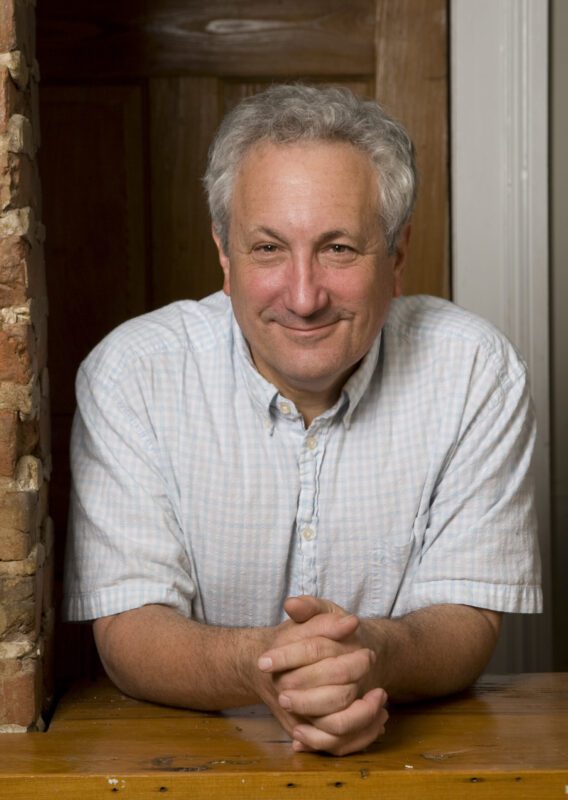
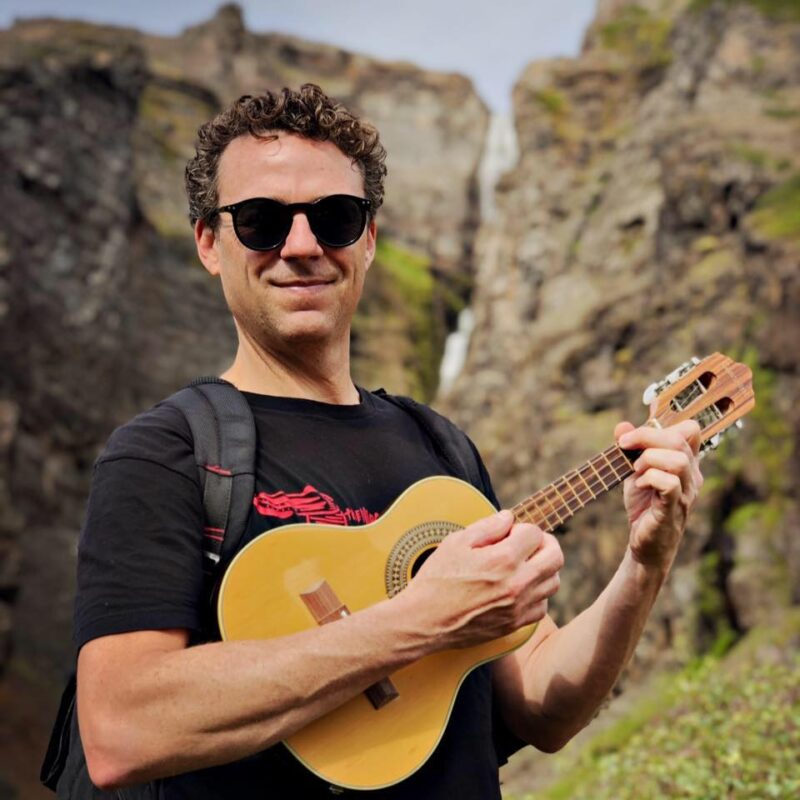
Pan M 360 : You put more emotions and care…
Jacob Edgar : Right. Algorithms can’t figure out this kind of music. It’s too broad. It still needs a human touch, a curation process. So the official Putumayo playlists are on Spotify, Apple, YouTube, etc.
We’ve also started signing non exclusive single song deals with artists that allow us to re-release their songs under the Putumayo brand. I think that this is now the future for Putumayo. More and more people are needing that service that we provide. I’m really excited, also because we can give more opportunities to more artists! When we were doing physical CDs, I was very frustrated because we only had a certain number of slots every year, because, you know, we were putting out maybe eight to ten CDs a year, with ten to twelve songs each. That was it. But now with playlists and with our Putumayo Discovery Series, I can get more artists to benefit from the Putumayo brand than ever before. Our family is growing and growing. It’s really nice.
Pan M 360 : But Spotify and others don’t give a lot of money…
Jacob Edgar : Well, if you have volume, yes. We have more than 120 000 followers on Spotify. It’s more than most other record labels. More than Blue Note. We choose asong that we like, and it is doing 1 000 streams. We get it to a playlist with 120 times that. I feel it’s a good thing for the artists.
Pan M 360 : Has there been hardships in those 30 years?
Jacob Edgar : Of course.
First of all, back in the early days, the challenge was just getting people to take us seriously. Because of the fact that we were targeting non music aficionados, that we were targeting a wide audience. A lot of the journalists, a lot of the media, and a lot of the other record labels and industry people didn’t take us seriously. You know, they thought what we were producing was not worthy of attention from them.
But that changed a lot over the years because of our success. People realized that Putumayo was playing an important role. And a lot of those labels that didn’t want to license stuff to us completely changed their mind until the point where they were pitching to try to convince us to include their songs in our collections. And eventually, they came to realize that there’s a lot of thought that goes into these collections, and that the music that we were picking was not crap, it was good. It didn’t matter for us if the artist on the compilation was a big star or completely unknown. If the song is great, we want it and we want to give that artist a shot.
Other challenges we had were that Dan is is an entrepreneur, classic entrepreneur, he thinks big. In the mid 2000s, he thought probably too big, you know, like trying to grow the company to a point that was too big for it, spending more money than he probably should have.
There was a time in the mid 2000s, when we had 100 offices and over 140 employees, which for an independent record label was huge. We had warehouses everywhere. I mean, we had an office in South Africa and the Netherlands, a warehouse in Taiwan. I mean, we had offices in Brazil, it was crazy. We had offices everywhere. But we didn’t have outside investment. So that growth, which requires a lot of capital, had to come from the money that we were generating as a business. And even though we were selling a lot of records, we were spending a lot of money too. So that has been a challenge for Putumayo at times over the years. Because the reality is we’re still a record label. Every record label struggles with trying to continue to produce and market and promote and distribute their content, while also making enough money to make it cover everything that you’re doing.
Now we’ve made the decision eliminate physical products starting next year. It’s going to reduce a lot of the costs, while enabling us to continue developing the revenue streams that are the future for the company. We have much less employees, also. At our height, we had 140 or 150 people. That was in the mid 2000s. Over the years, it’s been slowly reducing and reducing and reducing. Now the staff is quite small. It’s down to its core. We have an office in New Orleans, we have our office in Vermont, and then we have a few people representing us in Europe and a few other territories. We’ve all gotten more efficient.
Pan M 360 : How did you spot songs and musicians at the time? And now?
Jacob Edgar : I would go on actual research trips to different countries. I would go to Brazil, if we were working on a collection from Brazil. If we were working on a Greek collection, I’d go to Greece. And I would hit record stores and meet with record labels. And I would come home with a suitcase filled with CDs. And at the same time people were sending me CDs. And you know, if you Google me, you’ll find a picture of my desk at the time, which was just like this height full of albums.. Now, I listen to music on the web. All day long!
I also subscribe to lots of newsletters and radio charts and blogs. And you know, I’m on the mailing list for lots and lots of people. I also use a couple of submission platforms like SubmitHub and Groover. These are platforms where artists can submit music to you and you can give them feedback and listen to their songs. I also do a lot of outreach, I’ll reach out to people and say, you know what’s hot? What are you listening to? I developed a process where I am every day listening to hours of music. I’ve come up with a database system and how to sort it and how to present it. So every week I present Dan with new songs. He takes what I present to him and makes his selections from those and then I will argue for him to pick ones that he might have overlooked. And we go back and forth until we have a roster of songs we will pursue for our new Putumayo discovery project. Some of them we will just add to our playlists. Some of them we will keep in our database, maybe for future compilations. And I’m doing the same thing with music videos. I’m always looking for new music videos. It’s an ongoing and very, very intensive process.
Pan M 360 : Going through your catalog, I see that some parts of the world are less represented, like the sub-Indian continent for example. Why is that?
Jacob Edgar : It has to do with the fact that we have always prioritized music that we think is accessible to the widest possible audience. There are certain types of music, either from certain parts of the world, or certain genres of music, that are not as easy for the audience we’re targeting. It can be a little more challenging for them, like, the scales are a little different, the style of vocalizations might be a little more, you know, intense. We want to start easy, and then people can get deeper as they grow comfortable. Some styles of music are more akin to classical music, which is great, but they ask for more deep listening, less casual.
I’m always trying to present music to people who don’t know that much about world music. And the reality is, it’s like food : if you give somebody pickled sheep’s testicles, they’re going to be like, Whoa, yeah, I don’t know. But if you give them you know, like, a hamburger with some different spice in it, they’re going to be able to accept that more easily, if they can relate to it in some way. We try to do that in the sense that we’re trying to create adventures, even if people who are coming to us are not necessarily the most adventurous.
Pan M 360 : What are you expecting to accomplish in the coming 30 years?
Jacob Edgar :
It is a good question. And it’s one that we haven’t necessarily directly discussed, me and Dan. Right. We mostly concentrated on adapting our model to thrive and survive. I think we found that for now. But where do we take it from here? That’s a conversation we need to start having now. I hope we’re able to develop a brand that connects with a new audience of younger people.
Pan M 360 : What are your demographics?
Jacob Edgar : It tends to be over 30 years old, but I think that’s mostly because that’s the audience that recognizes the brand the most. And we are now finding more and more younger people discovering our music, because it’s so widely visible now on the platforms.
The concept of Putumayo was always to be more than a music company. It’s a lifestyle company. It’s an attitude towards the world. Music is sort of the starting point for that. We always had visions of going into television, and travel and books, and just never really had the time or the resources to do that. I’m hoping that in this new period, Putumayo can do those types of things and become a true brand that promotes a multicultural view on the world, a celebration of diversity, because that’s really what it is about. It’s about saying the other is not something to be afraid of, the other is something to embrace, and to celebrate, and to say, Isn’t it great that we all do things differently? That’s the whole point of the label.
Pan M 360 : Jacob, we could continue this for another hour. I want to talk about you own label, Cumbancha. And the fact that you have moved to Montreal, and become a Canadian citizen. You have interesting views and projects about this city, and also on music outside of Putumayo, your work as an ethnomusicologist and as a speaker on local music traditions with National Geographic cruises around the world. But it will have to be another time, that I promise. Thank you so much!
Jacob Edgar : We’ll do that soon. Thank you!
Discover the Putumayo World Music Hour, a 60-minute international musical journey that has been broadcast on more than 100 radio stations for the past 20 years and on demand at www.putumayo.com/radioshow
